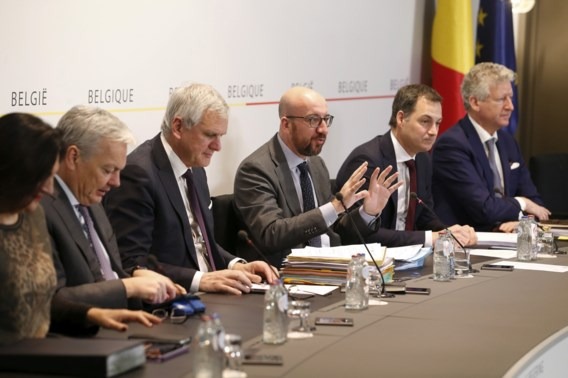On Friday, the Federal Council of Ministers adopted a Brexit law, which will lead to 718 additional new recruits. The government is asking parliament for a supplementary budget of 21 million euro. Prime Minister Charles Michel (MR) announced this at a press conference.
The additional personnel should be at cruising speed by 2020. The new resources will be requested when the next ‘twelfth’ is approved by Parliament, the Prime Minister explained. These are measures to deal with the consequences of a 'no deal' - a hard Brexit without an agreement.
Finance Minister Alexander De Croo (Open VLD) announced that on top of the recruitment of 141 customs officers, which had already been planned, 245 more will be recruited. A number of projects on digitisation and simplification are also being implemented more quickly. “We are turning a disadvantage into an advantage here. It also ensures that companies with processes accredited by customs will be able to work faster. As far as the financial markets are concerned, continuity for private investors will be guaranteed,” said De Croo.
The Economic Inspectorate is adding 21 full-time jobs, said Minister of Economy Kris Peeters (CD&V). The Brexit law also provides legal protection for employment contracts of British citizens in Belgium and Belgians in Great Britain, on the basis of reciprocity. The government will also seek advice from the Accounting Standards Committee on how to proceed with the accounting standards and annual accounts of British companies in Belgium, as the United Kingdom will no longer be part of the European Union.
Interior Minister Pieter De Crem (CD&V) said that 40 full-time employees will be added to strengthen internal security and border control. There will also be a liaison officer in London.
In addition, the Federal Food Agency FASFC is also being strengthened for additional controls and the Foreign Affairs Department is expanding its negotiation teams. Foreign Minister Didier Reynders (MR) announced that he will meet his British counterpart Jeremy Hunt in Brussels on Monday.
Energy Minister Marie Christine Marghem (MR) referred to the Nemo Link - a submarine power cable between Belgium and the United Kingdom - which will become operational at the end of January. The cable can carry 1,000 MW of electricity in both directions, approximately the capacity of a nuclear power plant. But both countries have to renegotiate pricing, as the rules within the European Union will no longer apply after Brexit.
The Brexit law is now being sent to the Council of State for urgent advice. Prime Minister Michel said he is counting on parliament’s understanding of its responsibility to approve the additional resources.
Arthur Rubinstein
The Brussels Times

